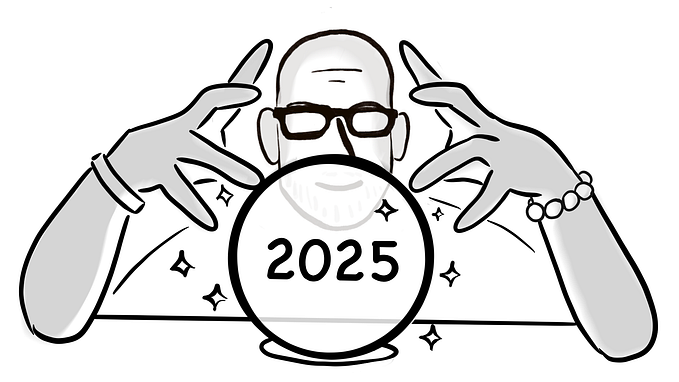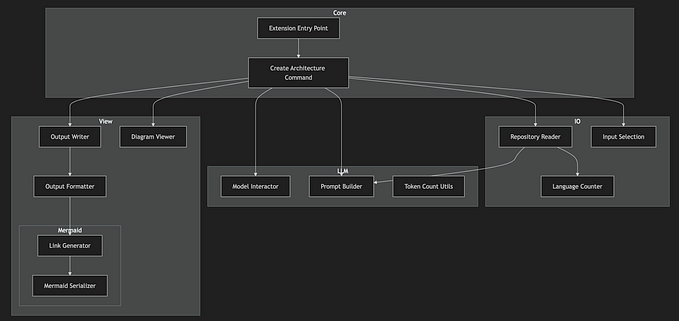PMS Software

Understanding Project Management: A Comprehensive Overview
In today’s fast-paced world, where change is the only constant, effective project management has become a critical skill across various industries. Whether you’re working in technology, construction, healthcare, or even running a small business, the principles of project management can significantly impact your success. But what exactly is project management, and why is it so essential?
Features of Project Management Software.
38+ Built-In Features of Project Management Software.
- Invoicing Module.
- Customer Database Management.
- Recurring Module — Sales, Tasks, Invoicing & Expenses.
- Estimates and Proposals.
- Pre-Integrated Online Payment Gateways.
- Staff Roles and Permissions.
- Goals and Tasks Tracking.
- Dedicated Panels for Staff, Clients & Vendors.
- Automated End-to-end Encrypted (e2ee) Backups.
- Dedicated (TLS) SMTP Email Exchange Server.
- Leads Management.
- Project Management.
- Support Tickets with Department Email Piping.
- Customized Reporting.
- Additional Security Layer by Google Inc.
- Project Milestones with AI To do Manager.
- Contracts and Agreements with Digital Signatures.
- Industry Specific RTI Modules.
Ready to integrate industry specific modules of project management software.
- Ready to Integrate with 55+ Apps.
- Accounting & Bookkeeping Module.
- Affiliate Management Module.
- Assets Management Module.
- Sales Staff Commissions Module.
- Files & Data Sharing Module.
- HR Records & Documentation Module.
- HRM — Human Resource Management.
- Loyalty & Membership Module.
- Manufacturing Management Module.
- Purchase Management Module.
- Recruitment & Careers Portal Module.
- Suppliers Management Module.
- Inventory Management Module.
What is Project Management?
At its core, project management is the art and science of planning, executing, and overseeing a project from inception to completion. The goal is to achieve specific objectives within a defined timeline and budget. A project is typically a temporary endeavor undertaken to create a unique product, service, or result. This could range from developing a new software application to constructing a building or even organizing an event.
Project management involves applying knowledge, skills, tools, and techniques to meet project requirements and achieve the desired outcomes. It’s not just about managing tasks but also about balancing competing constraints, such as scope, time, and cost.
Key Components of Project Management
- Project Scope: This defines what the project will deliver. It includes the project’s goals, deliverables, features, functions, tasks, and deadlines. Clear scope definition helps ensure that all stakeholders have a common understanding of what the project entails and what it will achieve.
- Project Schedule: A project schedule outlines the timeline for completing the project. It includes deadlines for milestones, tasks, and deliverables. Effective scheduling helps ensure that the project progresses smoothly and meets its deadlines.
- Project Budget: This involves estimating, allocating, and controlling the financial resources needed for the project. A well-defined budget helps prevent overspending and ensures that financial resources are used efficiently.
- Project Quality: Quality management involves ensuring that the project’s deliverables meet the required standards and satisfy stakeholder expectations. This includes defining quality criteria, monitoring performance, and implementing improvements as needed.
- Project Risk Management: Risk management involves identifying, analyzing, and responding to potential risks that could impact the project’s success. This includes developing risk mitigation strategies and contingency plans.
- Project Stakeholders: Stakeholders are individuals or groups who have an interest in the project’s outcome. Effective project management involves engaging stakeholders, understanding their needs and expectations, and communicating effectively throughout the project lifecycle.
- Project Communication: Clear and effective communication is crucial for project success. This involves sharing information with stakeholders, coordinating with team members, and keeping everyone informed about project progress, changes, and issues.
- Project Integration: Integration management involves coordinating all aspects of the project to ensure that they work together effectively. This includes aligning project activities, managing dependencies, and ensuring that project objectives are achieved.
The Project Management Lifecycle
The project management lifecycle provides a structured approach to managing projects. It typically includes the following phases:
- Initiation: This phase involves defining the project’s purpose, objectives, and scope. It includes identifying stakeholders, developing a project charter, and obtaining approval to proceed.
- Planning: In this phase, detailed plans are developed to guide the project’s execution. This includes creating a project management plan, defining tasks and schedules, allocating resources, and developing risk management strategies.
- Execution: During execution, the project plan is put into action. This involves coordinating resources, managing tasks, and ensuring that work is progressing as planned. It also includes regular communication with stakeholders and addressing any issues that arise.
- Monitoring and Controlling: This phase involves tracking project performance against the plan. It includes measuring progress, managing changes, and addressing deviations from the plan. Regular status reports and performance reviews are conducted to ensure that the project remains on track.
- Closure: Once the project is completed, the closure phase involves finalizing all activities, obtaining stakeholder acceptance, and conducting a post-project review. This phase also includes documenting lessons learned and closing out project documentation.
Project Management Methodologies
There are several methodologies used in project management, each with its own approach and techniques. Some of the most common include:
- Waterfall: The Waterfall methodology is a traditional approach where projects are completed in sequential phases. Each phase must be completed before moving on to the next. This methodology is best suited for projects with well-defined requirements and a predictable scope.
- Agile: Agile is an iterative approach that focuses on flexibility and adaptability. Projects are divided into small, manageable increments called sprints. Agile methodologies, such as Scrum and Kanban, emphasize continuous improvement, collaboration, and customer feedback.
- Lean: Lean methodology aims to maximize value while minimizing waste. It focuses on improving efficiency, reducing costs, and delivering value to customers. Lean principles are often used in conjunction with other methodologies, such as Agile.
- PMBOK: The Project Management Body of Knowledge (PMBOK) is a framework developed by the Project Management Institute (PMI). It provides guidelines and best practices for project management and is widely recognized in the industry.
- PRINCE2: PRINCE2 (Projects in Controlled Environments) is a process-based methodology that emphasizes organization, control, and quality. It provides a structured approach to project management and is widely used in the UK and Europe.
The Role of a Project Manager
The project manager is responsible for overseeing all aspects of the project, from planning to execution and closure. Key responsibilities include:
- Leadership: The project manager provides direction and guidance to the project team. They motivate team members, resolve conflicts, and ensure that everyone is working towards the project’s goals.
- Planning: The project manager develops the project plan, including defining scope, scheduling tasks, and allocating resources. They also develop risk management strategies and ensure that the project is on track.
- Execution: During execution, the project manager coordinates activities, manages resources, and ensures that tasks are completed on time and within budget. They also communicate with stakeholders and address any issues that arise.
- Monitoring and Controlling: The project manager tracks project performance, measures progress, and manages changes. They review status reports, assess performance against the plan, and make adjustments as needed.
- Closure: In the closure phase, the project manager ensures that all activities are completed, obtains stakeholder acceptance, and conducts a post-project review. They also document lessons learned and close out project documentation.
Challenges in Project Management
Project management is not without its challenges. Some common challenges include:
- Scope Creep: Scope creep occurs when the project’s scope expands beyond its original objectives. This can lead to delays, increased costs, and confusion among team members. Effective scope management and change control processes are essential to prevent scope creep.
- Budget Overruns: Budget overruns can occur due to inaccurate estimates, unexpected costs, or poor financial management. Regular monitoring and control of the budget are crucial to preventing overspending.
- Schedule Delays: Delays can result from various factors, including resource constraints, unforeseen issues, or changes in requirements. Effective scheduling and time management are essential to keeping the project on track.
- Communication Issues: Poor communication can lead to misunderstandings, conflicts, and delays. Clear and consistent communication is vital for ensuring that all stakeholders are informed and aligned.
- Risk Management: Risks are an inherent part of any project. Failure to identify and manage risks can lead to project failure. Developing risk mitigation strategies and contingency plans is crucial for managing potential threats.
The Future of Project Management
As technology continues to evolve, the field of project management is also changing. Some trends shaping the future of project management include:
- Digital Tools: The use of digital tools and software for project management is on the rise. Tools such as project management software, collaboration platforms, and data analytics are enhancing project planning, execution, and monitoring.
- Remote Work: The shift towards remote and hybrid work models has changed how projects are managed. Project managers are now using digital tools to coordinate with remote teams and manage projects across different locations.
- Agile and Hybrid Approaches: Agile methodologies are gaining popularity, especially in industries like technology. Many organizations are also adopting hybrid approaches that combine Agile and traditional methodologies to suit their needs.
- Focus on Soft Skills: In addition to technical skills, project managers are increasingly required to possess strong soft skills, such as communication, leadership, and emotional intelligence. These skills are essential for managing teams and stakeholders effectively.
- Sustainability and Ethics: There is a growing emphasis on sustainability and ethical practices in project management. Projects are being evaluated not only for their financial success but also for their environmental and social impact.
Conclusion
Project management is a vital discipline that plays a crucial role in achieving successful outcomes in various industries. By understanding the key components, methodologies, and challenges of project management, individuals and organizations can enhance their ability to deliver projects efficiently and effectively. As the field continues to evolve, staying updated with the latest trends and tools will be essential for navigating the complexities of modern project management. Whether you’re a seasoned project manager or just starting, embracing the principles of project management can lead to greater success and fulfillment in your professional endeavors.








